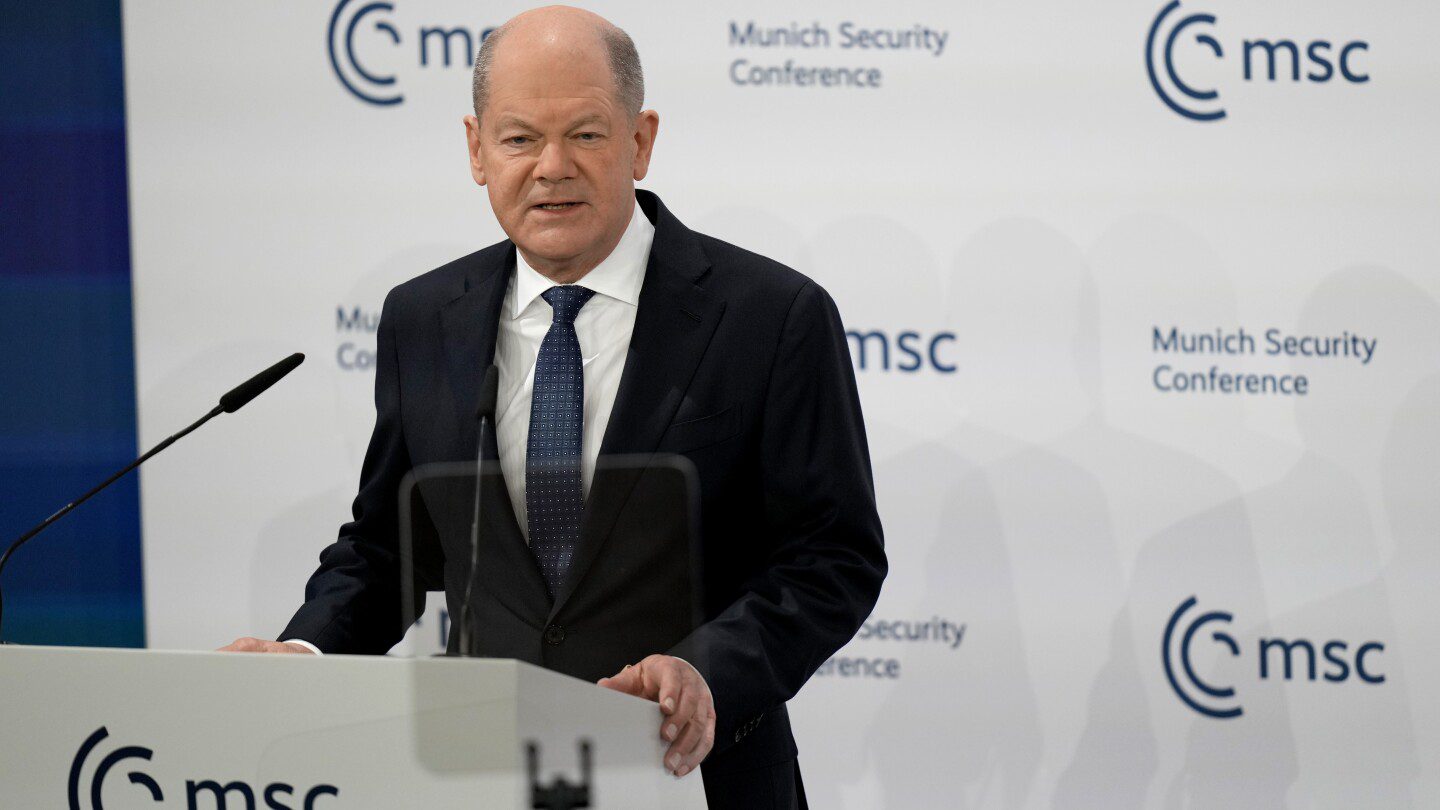
MUNICH (AP) — On Saturday, Ukrainian President Volodymyr Zelenskyy declared that the moment has arrived for the establishment of a “European armed forces,” emphasizing that Ukraine’s ongoing struggle against Russia has laid the groundwork for such a force.
Zelenskyy highlighted the critical need for Europe to be self-reliant, cautioning that the U.S. could potentially decline to support Europe in critical situations. He pointed out that numerous leaders have long acknowledged the necessity of a robust European military presence.
“I genuinely believe the time has come,” Zelenskyy stated during the Munich Security Conference. “It’s imperative to create the armed forces of Europe.”
The Ukrainian leader also referenced a recent discussion between U.S. President Donald Trump and Russian President Vladimir Putin, where Trump indicated the two leaders might meet soon to discuss a potential peace agreement regarding Ukraine. Trump assured Zelenskyy that he would also have a role in the negotiations aimed at resolving the conflict ignited by Russia’s large-scale invasion of Ukraine in 2022.
“Ukraine will never accept agreements made without our participation, and this principle should apply to all of Europe,” Zelenskyy asserted.
“Just a few days ago, President Trump informed me about his discussion with Putin. He did not once suggest that America needs Europe involved in the discussions. That speaks volumes,” he added. “The era in which America supported Europe simply due to tradition has come to an end.”
Zelenskyy emphasized that “three years of full-scale warfare have demonstrated that the foundation for a unified European military force is already in place. As we continue our struggle and strive for peace and security, we must advance the creation of Europe’s armed forces.”
Response from the German Chancellor
His comments came shortly after German Chancellor Olaf Scholz criticized the recent political approach from Washington under the Trump administration. Scholz passionately defended his stance against far-right influences and expressed that his country will not accept external interference in its democratic processes — a clear response to U.S. Vice President JD Vance’s remarks criticizing European leaders on democracy-related issues.
While denouncing alleged U.S. interference in Germany’s upcoming elections, Scholz expressed satisfaction in what he labeled a shared commitment between Germany and the United States to “uphold the sovereign independence of Ukraine,” echoing Trump’s sentiment that the Russia-Ukraine conflict must be resolved.
Current polling indicates that the Alternative for Germany (AfD) party, whose co-leader met Vance recently, is now in second place, surpassing Scholz’s Social Democrats.
Scholz also referenced Germany’s historical context, stating that the long-standing commitment to “Never Again” — preventing a return of extreme right ideologies — is incompatible with support for the AfD.
“We will not tolerate external interference in our democracy and election processes by those looking from the outside,” he stated. “This behavior is unacceptable among friends and allies. We firmly reject it.”
“The trajectory of our democracy is a decision solely for us to make,” Scholz emphasized.
On the previous day, Vance expressed concerns about the perceived decline of free speech across Europe, stating that many Americans see entrenched interests utilizing Soviet-era terminology like misinformation to suppress alternative viewpoints or electoral outcomes.
Scholz countered, stating that “free speech in Europe must not devolve into attacking others in ways that violate our national laws,” alluding to Germany’s regulations against hate speech.
Europe Navigates Changes Under the New U.S. Administration
European leaders are striving to grasp the implications of a tougher stance from Washington regarding democracy and Ukraine’s future, as the Trump administration seeks to revise longstanding transatlantic practices established post-World War II.
Zelenskyy reiterated on Friday that Ukraine demands security guarantees before initiating negotiations with Russia. Shortly before his meeting with Vance in Munich, he stated that he would only agree to an in-person discussion with Putin once a shared plan is established with Trump.
After a 40-minute meeting with Zelenskyy, Vance affirmed that the Trump administration is keen on ending the ongoing war.
Prior to this, Vance addressed European officials regarding free speech and illegal immigration, cautioning that failure to adapt quickly may result in diminishing public support.
“The most significant threat I perceive regarding Europe is not from Russia or China; rather, it is an internal retreat from some of the fundamental values we share with the United States,” Vance proclaimed in a speech that elicited a lackluster reaction.









